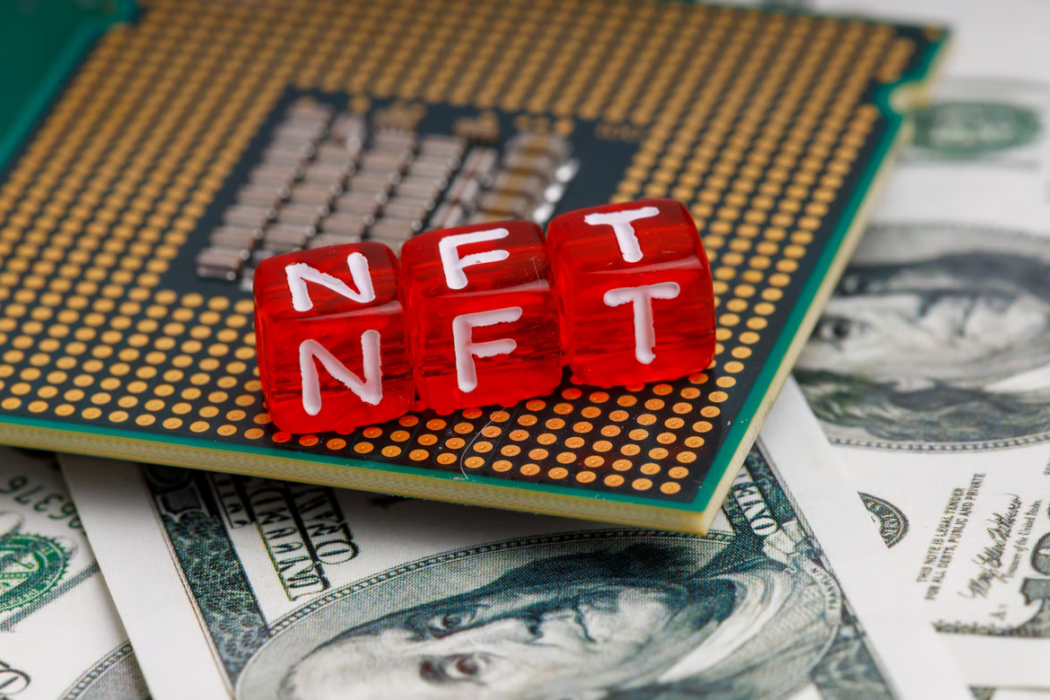NFTs are sweeping through the music world, providing advantages to artists and consumers in the new paradigm. Artists may use blockchain technology to avoid paying large royalties to merchandise businesses while still providing fully unique experiences for their audiences.
Investors may buy NFTs from their preferred musicians, which allow them to develop a personal relationship with such artists and get a portion of the earnings from their hottest tracks. There are many avenues to make money from music NFTs.
However, before jumping on the music NFT bandwagon, it will help if you do your due diligence. Know what works and what doesn’t. If you are in Germany, contracting a brokerage firm may help you put things in perspective. To hire the right online broker, visit Brokerschart to see the list of reputable online brokers in Germany.
A Quick Overview of NFTs
Blockchain technology supports two categories of transactive information – fungible and non-fungible data. Fungible units are distinct from each other, allowing for real one-on-one transactions. It comprises a large bulk of cryptos.
Non-fungible assets are purposefully tagged with personally identifiable information, allowing them to be easily recognized from any other token.
Music NFTs: What You Should Know
Music NFTs are different from buying music IP assets from online brokers like Plus500 broker. Today, NFTs are considered ‘virtual properties.’ But that isn’t the only thing they’re about. They may also be used in practically any application that utilizes a personal ID. Not only is virtual ownership important, but so is online accessibility and identification.
Metaverse citizens can utilize NFTs for property investment, clothes, and customization. DAOs can employ NFTs to assign particular responsibilities to individuals or merely to signify group identity in a personal fashion.
How Are Music NFTs Created?
NFTs are generated by a process known as minting, in which information is duplicated and placed on the blockchain. Once coined and acquired by the buyer, the NFT may be displayed or sold on several platforms and markets.
Music NFTs enable musicians to sell to their audience without using a middleman or marketing agency.
Can NFTs Change the Music Industry?
By eliminating the middlemen, artists can sell straight to their audience, who can then store their NFT on the blockchain. Not only will a higher number of purchases go directly into the creator’s wallet, but the cryptographic history of legitimacy will eliminate piracy worries.
How to Make Smart Investments in Music NFTs
Music NFTs are introducing a new, fairer model for the entertainment market, benefiting both listeners and musicians. The smartest investments contribute to the betterment of the world without compromising revenue, and the responsible businessman realizes that income attracts people in a morally responsible society.
Like buying music IP assets from online brokers like Libertex.com to make gains, music NFTs are a powerful profit tool, and the best part is that so many potential buyers are ahead of the trend. Presently, there seem to be three basic methods to engage in music NFTs.

● NFT Exchanges
NFT markets are fast-growing, and the music business is catching up. There are currently several NFT markets to select from, and most are publicly traded corporations or groups with native cryptos in which traders may invest.
Music NFT markets vary from art NFT platforms as they are intended to create connections between musicians and listeners instead of merely enabling purchases, resulting in cultural diversity in platforms.
● Collections of NFT
Traders wishing to personalize their portfolios might start an NFT catalog by acquiring NFTs from creators they appreciate.
While trading in the markets is comparable to purchasing shares, starting a music NFT library is comparable to acquiring art. Elegance, real interest, and resale value should all be weighed against personal preferences.
● NFT Investments
NFT indices are gaining traction as risk-averse solutions are available. If investing in a private music NFT catalog is too risky, buyers might seek awareness through offers like the Bitwise NFT index strategy.
NFT owners in certain areas worldwide can utilize their own NFT holdings as security for loans, enabling them instant access to funding while mitigating NFTs’ often sluggish liquidity.
Pros and Cons of Music NFTs
Music NFTs might be a major revolution in the music business. But, while it offers great promise, there are still some grey areas that need attention. Here are some pros and cons of music NFTs.
Pros:
● A Deeper Connection Between Fans and Artists
Musicians may use NFTs to develop a particular relationship with their top supporters by giving one-of-a-kind, non-duplicable products or personalized invites.
● Stress-Free Transactions
Agreements may be conducted purely online, with no tangible objects being sent or stored. Also, since they are stored on the blockchain, buying and selling them is relatively simple and straightforward.
Cons:
● Biggest Players Win Out
Low performers with no existing fan base will find it difficult to match the commercial success of more recognized artists.
● It Is Overrun with Speculators
Currently, NFT marketplaces are flooded with inventory, and investors are trying to acquire and exchange chunks for quick returns. Because of that, prices are unpredictable, and real collectors must face ever-increasing premiums for objects they want to acquire.
Final Thoughts
NFT in the music industry is a positive change in the technological environment. It allows for a deeper and more personal artist-to-fan connection while also creating new methods to commercialize content with no need for conventional record labels.

By investing in music NFTs, you are leveraging on a great opportunity that many people are yet to truly embrace, and if the early signs are anything to go by, it’s an investment that should yield great returns in the foreseeable future.


